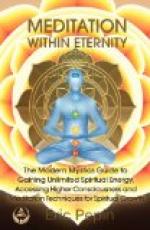According to the most reliable authorities, Buddha died in his eightieth year, having spent about fifty years in preaching, in healing the sick, in conversing with exalted beings in the heavenly worlds, and in leaving at will his physical body and visiting other worlds.
Buddha prophesied his coming dissolution, and expressed to his disciples, a hope that they would realize that he still lived, even when his physical body should have become ashes.
As his last hour approached, Buddha summoned his disciples, and after a moment’s silent meditation, he addressed himself to Ananda, his relative; as well as his favorite disciple, thus:
“When I shall have disappeared from this state of existence, and be no longer with you, do not believe that the Buddha has left you, and ceased to dwell among you. Do not think therefore, nor believe, that the Buddha has disappeared, and is no more with you.”
From these words, it is evident that the state of Nirvana which Buddha assured his followers that he had already attained, did not argue loss of identity, nor translation to another planet.
Nor is there anywhere in the sayings of Buddha, rightly interpreted, any suggestion of expecting or desiring personal worship. This, the great sage particularly avoided, as indeed have all illumined ones.
It is evident that Gautama the Buddha had experienced that divine influx of light and wisdom in which he sought for others the happiness he had gained for himself, and to this end he was eager to leave to his friends and disciples such rules of conduct of life as should aid them in attaining the divine peace that comes from illumination.
But that he founded a religious system of worship of himself, is wholly unbelievable in the light of a study of comparative religions and the wisdom which illumination confers.
To realize that one has attained to immortality, and claimed his birthright of godhood, is not synonymous with the claim to worship as the one eternal source of life.
It is a part of human weakness to insist upon idealizing the personality of a teacher, and this tendency becomes in time merged into actual worship, whereas the teacher, if he or she be truly illumined, seeks only to inculcate the philosophy which will bring his faithful followers into a realization of cosmic consciousness.
The points which characterize the person who has experienced a degree of illumination (entered into cosmic consciousness), were particularly evident in the life and character of Gautama, the Buddha. They may be summed up thus:
A marked seriousness in youth.
A great sympathy and compassion with the sorrows of others.
A deep tenderness for all forms of life.
A realization of the nothingness of caste and pomp and power.
The firm conviction that he was instructed by angels.
The wonderful magnetism and illumination of his person.




